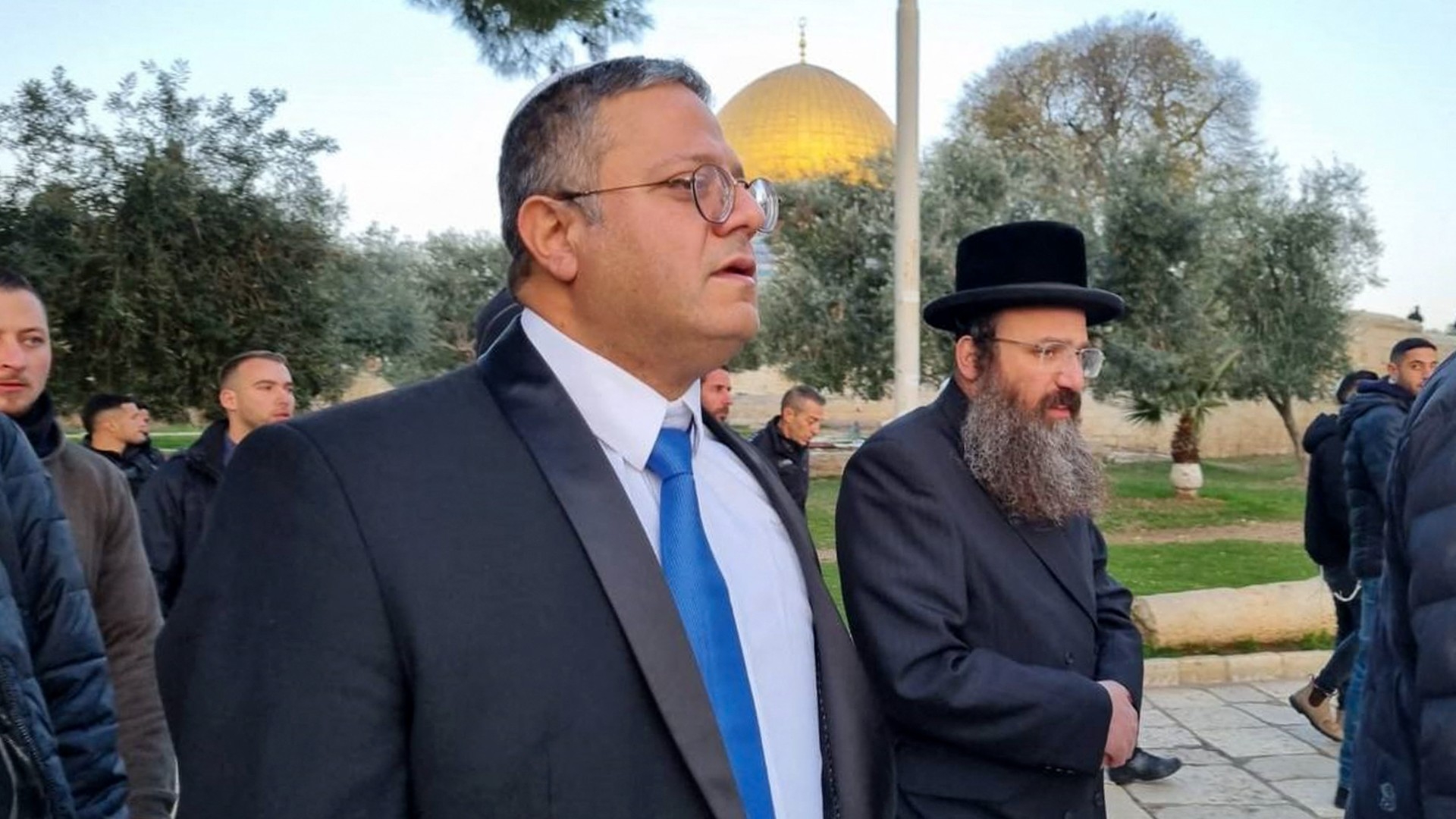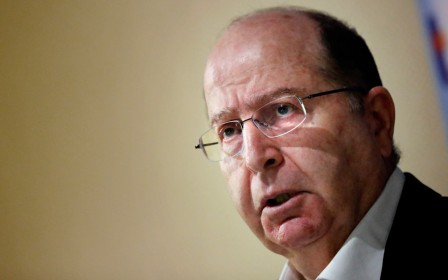Israel bans Islamic call to prayer

Israel’s far-right national security minister, Itamar Ben Gvir, directed police on Sunday to ban mosques from playing the adhan, or Islamic call to prayer, claiming it "disturbs" Jewish residents.
He has instructed authorities to confiscate loudspeakers and fine mosques for playing the call, which lasts about two minutes.
Ben Gvir defended the move as necessary to combat "unreasonable noise" and lawlessness.
In an interview with Channel 12, Ben Gvir said that he was “proud” to move forward with a policy of “stopping unreasonable noise from mosques and other sources that has become a hazard for Israel’s residents”.
“In our debates, it arose that most western countries, and even some Arab countries, limit the noise and have many laws on the matter. It’s only neglected in Israel,” Ben Gvir’s office said in a statement.
New MEE newsletter: Jerusalem Dispatch
Sign up to get the latest insights and analysis on Israel-Palestine, alongside Turkey Unpacked and other MEE newsletters
In a post on X, he called the adhan a "hazard" to nearby Israelis. Palestinian citizens of Israel, however, view the ban as a provocative attack on their community and religious rights.
Ahmad Tibi, an MP and leader of the Taal party, condemned the decision.
"Ben Gvir wants to set the area on fire on religious grounds," he told parliament. "In the past, there were attempts to pass a law against calls to prayer in mixed cities. Our position on this issue, in the Arab sector, is to oppose police entry. The adhan will continue because Islam will continue."
Tibi then accused Israeli Prime Minister Benjamin Netanyahu of being behind Ben Gvir's actions, saying: "He is the head, and he is responsible for this thing and the difficult consequences that could occur if this thing comes true".
Human rights advocates and Palestinian mayors have denounced the ban as another discriminatory move by Israel's government.
'Control over public space'
Khaled Zabarqa, a human rights lawyer and activist, told Middle East Eye that Ben Gvir's move goes beyond mere provocation.
"Describing it as an act of provocation diminishes the gravity of the issue," he said. "It makes it seem like the issue is only about Ben Gvir, as if removing Ben Gvir would resolve the entire problem."
To Zabarqa, this related to the Israeli government's "concept of the Jewishness of the state" and its implications.
"One of these implications is control over public space," he said.
"Today, public space is crowded with various religious and national symbols. One of these religious symbols, reminding them five times a day, is the adhan, which signifies the presence of another people here. This is what they do not want."
Ben Gvir has a history of opposing the Islamic call to prayer. In 2013, long before assuming office, Ben Gvir and a group of far-right activists disrupted residents of the Tel Aviv neighbourhood of Ramat Aviv by blasting the adhan through loudspeakers.
The stunt, they claimed, was meant to highlight how other communities in Israel are “disturbed” by the call to prayer.
Efforts to restrict the adhan have also surfaced in Israel's parliament, the Knesset.
In 2017, the so-called "muezzin bill", which sought to limit the use of loudspeakers for religious purposes, passed an initial vote but ultimately stalled.
Middle East Eye delivers independent and unrivalled coverage and analysis of the Middle East, North Africa and beyond. To learn more about republishing this content and the associated fees, please fill out this form. More about MEE can be found here.




